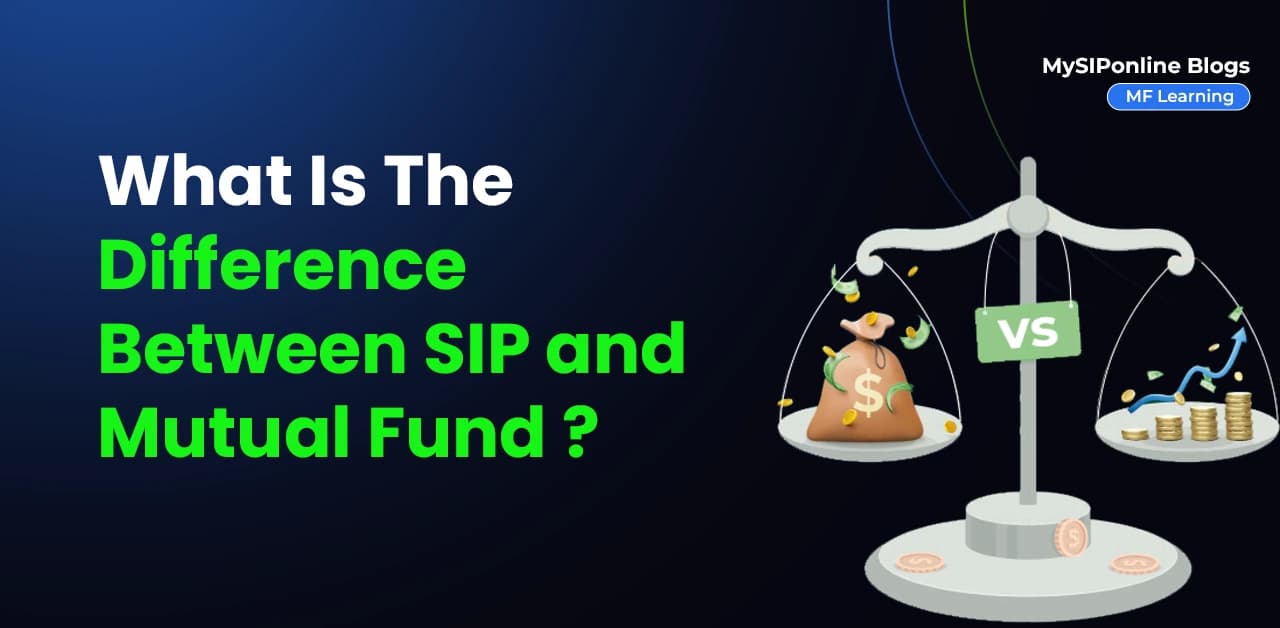Table of Contents
You can invest with minimal effort and lower costs, exactly like Warren Buffett recommends. The Oracle of Omaha has long appreciated ETFs and Mutual Funds as the best investment options, offering a simple way to grow your capital without the hassle of picking individual stocks.
But what exactly are ETFs and Mutual Funds and why does Buffett swear by them? Simply put, both allow you to invest in a diversified portfolio with just one purchase. The real question is: Which is better for you, ETFs or Mutual Funds? Let us explore the key differences and performance in India and which option will build your ideal portfolio.
What Are Mutual Fund & Exchange-Traded Funds (ETFs)?
To simply put, Mutual Funds and Exchange-Traded Funds (ETFs) are highly demanded investment options that allow investor to explore a range of assets without having to pick individual stocks. While both have key differences in structure, costs & trading methods.
Mutual Funds pool money from many investors to secure a diversified portfolio of stocks, bonds or other assets. Generally, they are actively or passively managed by an expert fund manager who selects the assets based on the funds strategy. You can buy and sell mutual fund at their Net Asset Value (NAV) at the end of the day.
On the other hand, ETFs are also a type of fund that picks money from investors but are traded on exchanges like individual stocks. You can buy and sell them throughout the day, just like intraday stocks. ETFs has monitor at a specific index, like the Nifty 50 commodity index.
Pro Tip: Know your future returns using the SIP Calculator in 3 easy steps.
Now, let us compare ETFs and Mutual Funds with parameters.
ETFs vs Mutual Fund: Key Differences You Should Know
In the below table see the key differences of ETFs and mutual funds, you should know before investing:
| Parameter | ETFs | Mutual Funds |
|---|---|---|
| Trading | Traded like stocks throughout the day | Bought and sold at the end of the trading day (NAV) |
| Fees | Commonly lower expense ratios & fees | Higher fees, due to actively managed funds |
| Management Style | Mostly passive (tracks an index) | Can be active or passive (fund manager selects stocks for you) |
| Liquidity | Can be bought/sold anytime during market hours | Only bought/sold at the end-of-day NAV |
| Minimum Investment | Buy in increments of 1 share | Mostly requires a higher minimum investment |
| Tax Efficiency | More tax-efficient due to lower capital gains distributions | Less tax-efficient with more capital gains distributions |
| Dividends | May pay dividends; can be reinvested or paid out periodically | Dividends may be paid depending on the fund's strategy |
| SIP (Systematic Investment Plan) | Not generally applicable for ETFs | Available — allows regular monthly investments in mutual funds |
| Diversification | Offers diversification through an index or sector | Provides diversification across different asset classes (stocks, bonds, etc.) |
Explore how ETFs and Mutual Funds perform over time.
Which is Better for Long-Term Investment: ETFs vs Mutual Funds?
Selecting between ETFs and Mutual Funds can be jumble, but for long-term investments, ETFs are the better option due to their lower fees & tax planning. They offer high market exposure at a lower cost, making them ideal for consistent growth over time.
However, mutual funds are generally actively managed & give potential for higher returns by expert management, but they come with higher fees that may mitigate long-term return profits.
However, the burning question is "which one offers better returns over time, ETFs or Mutual Funds?" Well, it basically depends on your choice. ETFs offer cost-effective, passive growth, in contrast, mutual funds provide active management with the potential for higher returns, but at a higher cost.
Must Read: Best Mutual Funds to Invest in 2025: Low-Risk Options for High Return
Moving forward to important heading, how they handle dividends.
Do ETFs Pay Dividends? What You Need to Know
Yes, ETFs can pay dividends. Many ETFs, generally those tracking stocks, market indices like BSE Sensex and Nifty 50, sector-specific benchmarks and index funds distribute dividends quarterly or annually. These payments come from the securities held in the fund and affect its Net Asset Value (NAV).
However, ETFs give lower dividend yields than Mutual Funds that focus on high-dividend stocks. Before start investing in ETFs, check the asset classes and diversification.
Don’t Miss: Best SIP Plan for 20 Years: With Equity, Debt & Hybrid Funds
Now, take a look at how ETFs & MFs are taxed.
ETFs vs Mutual Funds in India: Tax Implications
In India, ETFs and Mutual Funds have different tax implications. For ETFs, short-term capital gains STCG, if held for less than 1 year, are taxed at 15%. Long-term capital gains (LTCG), if held for more than 1 year or if the gains greater than Rs 1 lakh, are taxed at 10%.
For mutual funds, equity mutual funds are taxed with 15% on STCG and 10% LTCG on gains beat Rs 1 lakh. Debt mutual funds have a different tax form, where STCG is taxed based on your income tax slab and LTCG is taxed at 20% with indexation.
Overall, ETFs are more tax-efficient due to lower capital gains distributions, making them an attractive option for investors looking to mitigate tax burden.
Conclusion
To wrap this blog, both ETFs and Mutual Funds have differences and benefits. ETFs are more tax-efficient & flexible, making them smart choice for long-term growth. Mutual Funds offer active management and the potential for higher returns, but with higher fees.
As Warren Buffett says, “The stock market is a device for transferring money from the impatient to the patient.” No matter your choice, being patient & get a clarity about your goals.
Related Blogs
Frequently Asked Questions
-
Are ETFs less risky than Mutual Funds?
ETFs are generally less risky if tracking broad indices but can fluctuate on daily basis. Mutual Funds depend on manager decisions.
-
Can I trade ETFs like stocks?
Yes, ETFs are traded like stocks throughout the day, offering greater flexibility compared to Mutual Funds, which trade only at NAV.
-
How do I choose between ETFs and Mutual Funds for my portfolio?
Choose ETFs for low-cost, long-term investments and Mutual Funds if you prefer expert management.
-
How do the expense ratios compare between ETFs and Mutual Funds?
ETFs typically have lower expense ratios than Mutual Funds, especially active ones that collect higher management fees.











